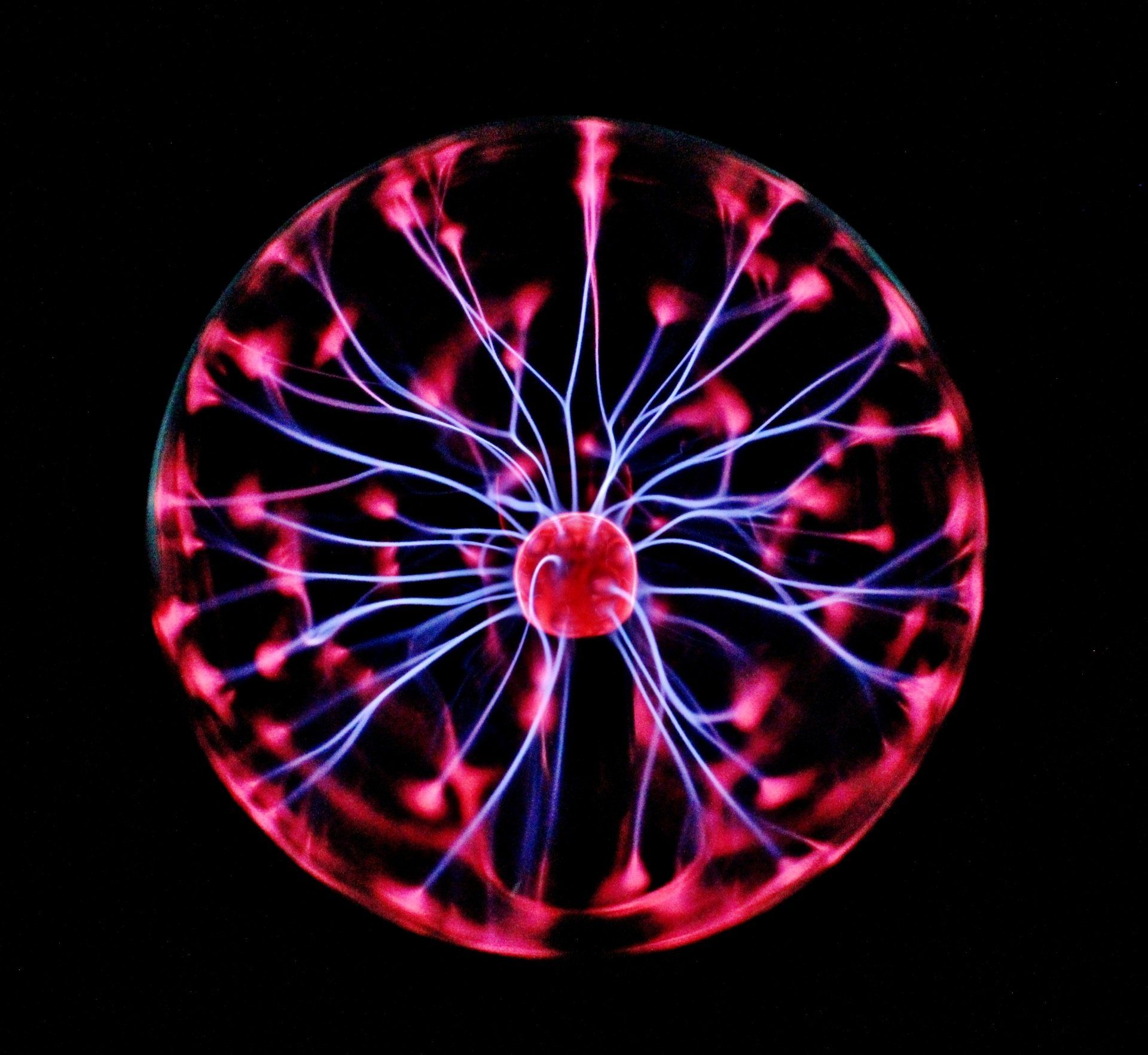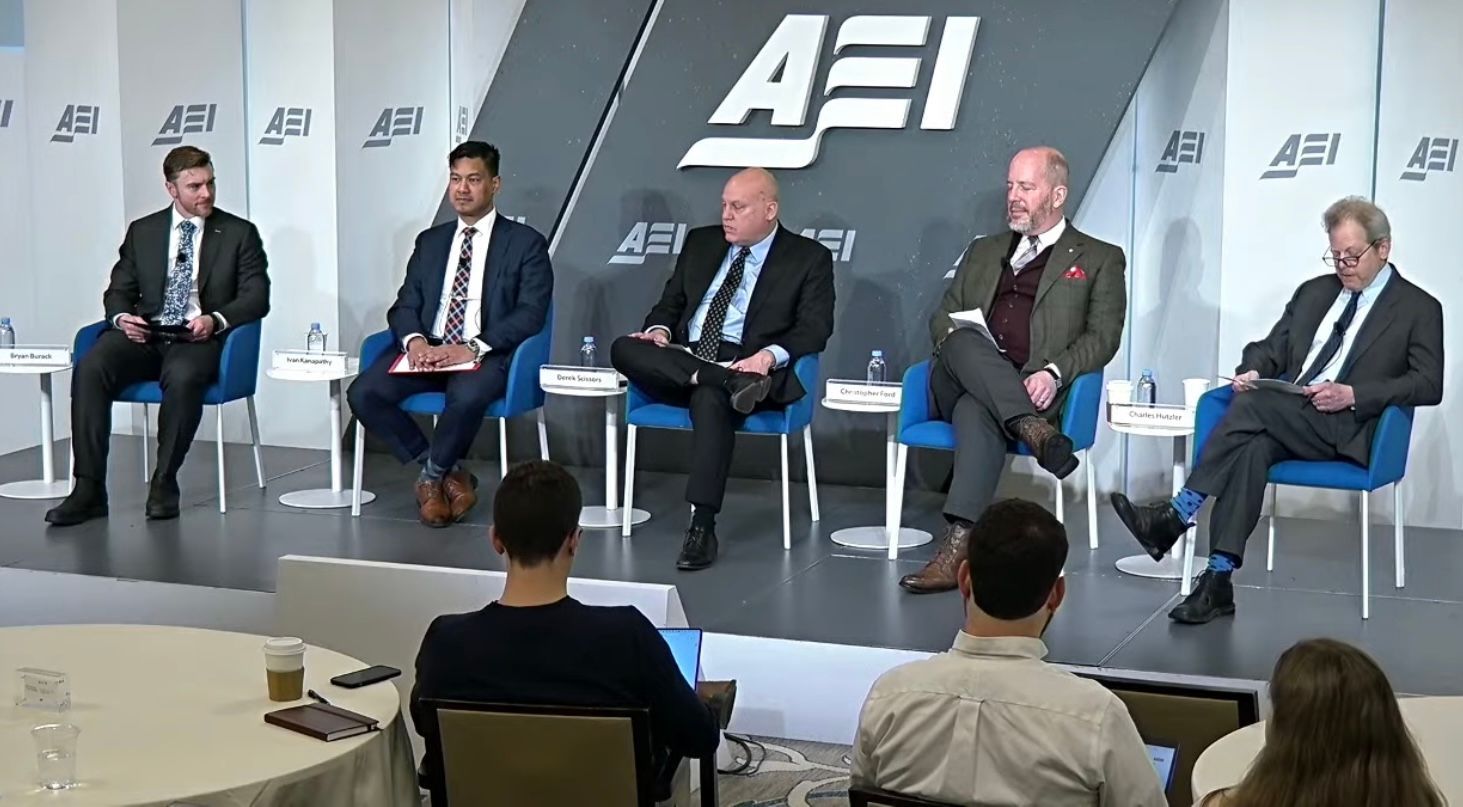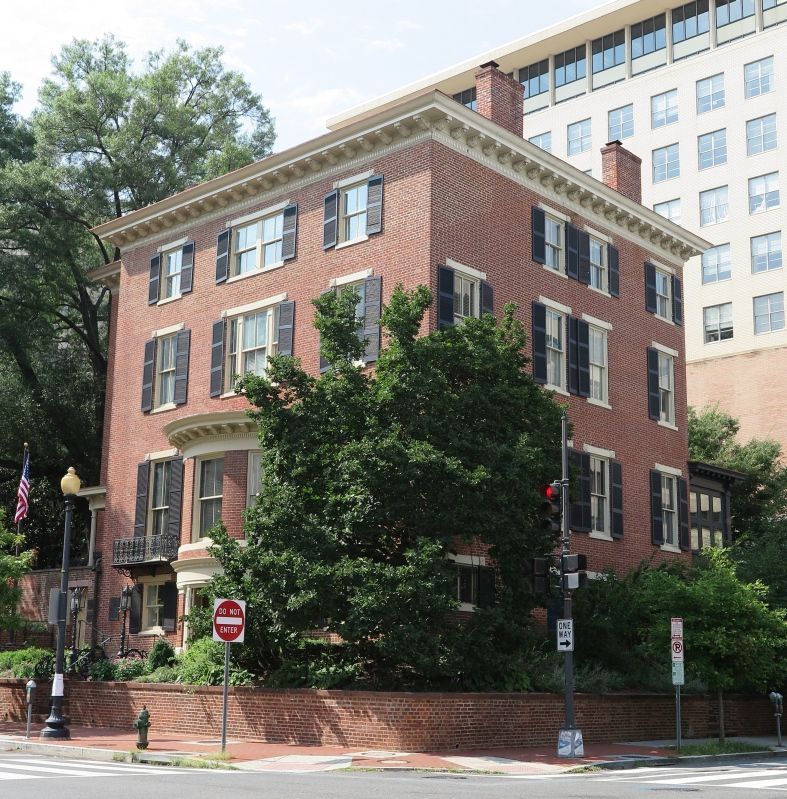The Hon. Christopher A. Ford
New Paradigms Forum -- International Security Policy Since 2009
Wellen and Ford: An Exchange on Arms Control Verification
Note:
Russ Wellen holds down the “Nukes and Other WMDs” desk for The Faster Times , writes "The Deproliferator" for Scholars & Rogues , Newshoggers , the Agonist , Smirking Chimp , and the Huffington Post , assists the Madrona Institute, and co-moderates Terralist. Here, in response to Ford’s last posting on this blog -- “Devil in the Details: Nuclear Command and Control in a Nuclear-Armed Middle East” -- he wrote to pose some questions about arms control verification. Below are his questions and Ford’s responses from their e-mail exchange of February 25, 2010, with the permission of, and thanks to, Russ Wellen.
Wellen:
I wonder if you would mind answering two quick questions for me to use in a post on verification, with attribution? One, a big reason conservatives are leery of arms-control agreements is concern about verification, right? Could you explain or expand on that in a sentence or two (if not the usual conservative view, your personal view)?
Ford:
One big reason why anyone, liberal or conservative, should be cautious about arms control is the challenge of verification. To my eye, the last few decades of U.S. political history suggests that conservatives tend to have a bit less trust in the good faith of an adversary – and to put less stock in the idea that violations will be deterred in part simply because they are “illegal.” As a result they tend to worry a bit more about verification than liberals, who seem to assume that treaties have a compelling force simply because they are treaties. (From a conservative perspective, if we felt the other party had good intentions and approached the relationship with us in good faith, we wouldn’t worry a lot about him having powerful tools, and wouldn’t need to worry too much about arms control in the first place. If he wishes us ill and cannot entirely be trusted, however, we need to be very careful in putting our security on the line in reaching arms deals with him: it is assumed that we will ourselves comply with such strictures, and we need to be bloody sure he will.)
That said, everyone also seems to agree, at least in principle, that verification isn’t a one-size-fits-all concept. It is very contextual. Even conservatives didn’t feel the need to have special verification procedures in the Moscow Treaty of 2002, because it was assessed that both the United States and Russia wanted to reduce (and would be reducing) their numbers of warheads anyway. Given that reductions seemed likely whether or not there was a treaty, and since START verification measures then provided at least some (highly indirect) window upon deployed warhead numbers, the Bush Administration felt perfectly comfortable without verification provisions in the Moscow Treaty. In circumstances in which the other side is perceived to have both incentives and the capability to cheat, however – as with denuclearization in North Korea – I’d expect conservatives to be much more hard-core on verification. And I’d hope they wouldn’t be alone: liberals’ faith in arms control [surely] depends upon it actually controlling arms! Everyone should care about verification.
Wellen:
Two, Greg Theilman, to me one of the most trusted voices in disarmament, just came out with an Arms Control Association Threat Assessment entitled New Start Verification: Fitting the Means to the End. Its basic theme is that, with Russia anyway, we can get away with a lot less verification these days, for various reasons. Sample:
Whatever role fear and overestimates played in prompting START’s extensive and elaborate limits, the circumstances bearing on Soviet strategic capabilities then were significantly different from those of Russia today. START was negotiated when Moscow could command the full resources of all 15 Soviet republics, including the spacious nuclear and missile test ranges of Kazakhstan and the prodigious missile production and design facilities of Ukraine, home to the SS-18 ICBM design bureau and manufacturing plant. In addition, the Soviet Union benefited from the in-depth defense permitted by the forward deployment of Soviet forces in Central Europe and the reinforcements provided by the armies of Moscow’s Warsaw Pact allies. The sophistication of national technical means such as imagery and signals intelligence has taken a quantum leap since the days when START was negotiated. Dramatic advances in commercial optical imagery systems during the last 20 years suggest parallel if not completely proportionate improvements in classified imagery technology. The French SPOT satellite was advertising a ground resolution of 25 meters in 1988 and 2.5 meters in 2010. In 2008, GeoEye launched a satellite claiming a resolution of 14 inches (0.36 meters). A similar evolution of steadily increasing resolution has been reported in succeeding generations of imaging radar satellites. Fifteen years of treaty implementation and resolution of differences in START’s Joint Compliance and Inspection Commission (JCIC) have likewise broadened and deepened the knowledge base of the two sides concerning each other’s strategic systems and operating procedures, and it has raised the level of mutual understanding and trust. The overall impact of START verification provisions was to give the sides a very robust understanding of the strategic threats they faced. Moreover, this information has been collected and confirmed without jeopardizing the credibility of either side’s deterrent.
My question: Does that sound like a step forward in verification, as it's portrayed, or backwards, and would it make you even more leery of START II?
Ford:
[The contexuality of what “verification” means is] quite relevant to post-START discussions, and to Thielman’s argument. Unfortunately, 2010 is not 2002 when it comes to Russia’s nuclear posture. Moscow seems willing to countenance some further reductions – for it is presently replacing larger numbers of old missiles with smaller numbers of new ones – but seems unlikely to desire very great reductions, and to be transparently uninterested in “zero.” It is working as fast as it can to modernize its delivery systems, and has even been reported to be conducting secret nuclear explosive testing and developing new warheads. (I should also note that this testing, if it is indeed occurring, violates Russia’s own no-testing promises, and bodes ill for CTBT.) Russia loves its “tactical” nuclear weapons, has violated its own 1990s-era promises to reduce them, and is now publicly crowing about a nuclear doctrine that contemplates preemptive nuclear strikes. The era of reductions that are easy because both sides really want them will soon close: how low will Russia be willing to go before it wants to put on the brakes? This is not good news for the verification world … except, I suppose, with regard to job security.
As we discovered during the Cold War, pushing Moscow in arms control directions it does not wish to go is very hard, and cheating is all too possible – even, at some level, probable. The Soviets cheated on the ABM Treaty, for instance, and I’m told were also some INF Treaty problems. As I recall, they were also always testing the limits of what they could get away with under START’s sometimes amazingly arcane and complicated verification procedures – and didn’t always stay on the “clean” side of the line, either. In years ahead, verification may get harder, not easier. [I haven’t read Thielman’s publication yet, but based upon your quotation he seems to place] great faith in overhead imagery[, which] suggests to me that he hasn’t spent much time studying the history of START verification: overhead imagery can tell you things about numbers of missiles in silos, but it is somewhat less useful with mobile missiles of the sort in which Russia is now investing (you have to know where to look), and it isn’t really helpful at all with regard to questions such as the number of warheads that could be or are loaded on them, or issues of missile performance. If the Russians encrypt key aspects of the telemetry signals they use in missile testing and play games with on-site inspections of missiles themselves, overhead is no help. Worse still, current post-START negotiations – and presumably any future follow-on deals – seem likely to include limits upon warhead numbers. (That was never addressed in START.) You can have all the GeoEye snapshots you want, but I can still hide a warhead in an oil barrel in my driveway, and you’ll be none the wiser.
Traditionally, U.S. officials have tended to approach verification from the perspective of “military significance” – which basically means that you don’t have to have perfect detection, but you do need to be able to detect violations that would have a significant impact upon the military balance. Unfortunately, that isn’t very encouraging from a disarmament perspective either. When the United States and USSR each had thousands of delivery systems and scores of thousands of warheads, you could imagine that it wouldn’t be such a big deal to be unable to detect cheating on the order of dozens of missiles or a couple of hundred warheads. (Would such a secret stash shatter the strategic balance between West and East when aggregate numbers were so high? It seems unlikely.) But things change in this regard as numbers get lower, and especially at “zero.” What is the threshold of “military significance” when you approach the asymptote of full disarmament? I would think it awfully low: at that point, even a very small number of weapons and delivery systems could be a wartime game-changer. (Washington already knows full well how important it can be to have a mere handful of atomic weapons in what is otherwise a world of zero: that was our situation between 1945 and 1949. The rest of the world seems to have thought our nuclear monopoly to be of very high “military significance”!) As numbers get lower, in other words, the demands upon verification become vastly more stringent.
I think START-derived verification – if done prudently – can probably handle the modest demands of the post-START deal outlined in principle by Presidents Medvedev and Obama in July 2009. (After all, the top of President Obama’s proposed range for deployed warheads is a paltry 25 weapons below the bottom of the range President Bush adopted in the 2002 Moscow Treaty. Delivery systems will apparently come down somewhat more, but the deal doesn’t sound much like what anyone would expect after listening to Obama’s disarmament rhetoric in Prague last spring.) That is not to say, of course, that I can guarantee it will be done prudently, or that too much will not be conceded on ancillary issues or “sweeteners” in the Obama Administration’s political desperation for an arms reduction deal. We’ll have to see about that. But things will get very challenging indeed for follow-on negotiations aimed at very low numbers. That’s where these issues start to become more acute.
In any event, in my view at least as big a problem as verification ( i.e. , detection of violations) is compliance enforcement ( i.e. , what happens if you find a violation). Here I think U.S. conservatives and liberals may disagree more characteristically. In my encounters with the liberal arms control community, I sense them to be much more enamored of the idea that the mere fact of detection, or the persuasiveness of diplomatic demarches, will serve to correct violations. (As some used to put it in the U.S.-Soviet arms control context, “the weight of world opinion will come crashing down upon the heads” of violators, presumably thereupon eliciting a remorseful return to compliance.) Conservatives don’t generally have much faith in such remedies, preferring tools of pressure and countervailing military development in order to reduce the violator’s strategic gains or “punish” cheating in a way that may help prompt a return to compliance and (in a multilateral context) deter others from following suit. I tend to fall in the latter camp, though I think “shame” remedies – even if commonly oversold -- can sometimes have at least some effect upon some violators.
-- Christopher Ford
AN ADDENDUM (posted 3/1/10):
FORD ADDS:
A perceptive reader has written to admonish me for forgetting to mention another important reason why specific verification measures were not felt to be necessary in the Moscow Treaty of 2002. That treaty was, in effect, the codification of unilateral reductions that both the United States and Russia already wished to undertake. Washington, in other words, had decided that it both could and wanted to reduce its operationally deployed warhead total to between 1,700 and 2,200 weapons regardless of whether Russia did or not. We invited Moscow to reciprocate in such reductions -- and it did, and we codified the result in the treaty -- but the conventional rationale for arms control verification ( i.e. , worrying about whether the other side is complying so that you can be confident it’s safe to comply yourself) was entirely absent in the case of the Moscow Treaty. These circumstances would seem unlikely to apply again, however, especially as numbers come down further. Verification will thus matter a good bit more in the future.
I’m embarrassed not to have remembered to note this in my original posting. Many thanks to my sharp-eyed conscience out there. (You, of course, know who you are.)
-- Christopher Ford



Copyright Dr. Christopher Ford All Rights Reserved






